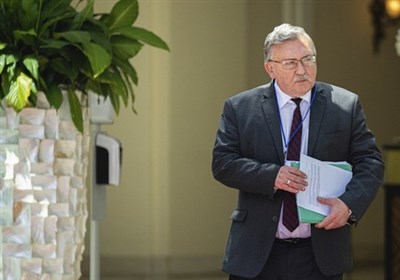G7, Australia Agree on Price Cap for Russian Oil at $60 per Barrel: Statement
TEHRAN (Tasnim) – Members of the Group of Seven (G7) and Australia have agreed to set the price cap on Russian oil at the level of $60 per barrel, the countries said in a joint statement.
"The G7 and Australia, as current members of the Price Cap Coalition, on 2 December 2022 reached consensus on a maximum price of 60 US dollars per barrel for seaborne Russian-origin crude oil," the statement said, TASS reported.
The decision will enter into force "on December 5, 2022 or very soon thereafter," it added.
"Our respective regulations are expected to include a time-limited exception for transactions involving oil that is loaded onto a vessel at the port of loading prior to December 5, 2022," the G7 and Australia said.
Details on the implementation of the price cap can be found in guidance published by their governments.
"Necessary measures to address possible circumvention and elusion will be duly considered, in line with our respective domestic legal processes," the countries said.
Participating nations are committed to "closely monitoring the effectiveness and impact of the price cap." "We will be prepared to review and adjust the maximum price as appropriate," they said.
A variety of factors will be taken into account, including " the effectiveness of the measure, its implementation, international adherence and alignment, market developments, and the potential impact on coalition members and partners, including low-and middle-income countries."
A similar decision on a price cap for Russian petroleum products will come into force on February 5, 2023.
"We reiterate our decision that the price cap on Russian-origin petroleum products will enter into force on February 5, 2023. We will announce the maximum prices for Russian-origin petroleum products (one for high-value and one for low-value refined products) separately," the statement says.
Russian Deputy Prime Minister Alexander Novak said on October 13 that Moscow would not export oil to countries who would impose a price cap on Russian oil. "The price should be formed by market means, based on the balance of demand and supply," he said at the Russian Energy Week forum.
Russian President Vladimir Putin said on October 12 that Moscow was not going to pay for somebody else’s prosperity and export its energy resources to those who impose price caps on them. He called the practice of price caps "cardsharp tricks" and "flagrant blackmail." Apart from that, in his speech at the Russian Energy Week, the president warned that price capping oil is fraught with the risks of setting price caps in other sectors, which is harmful for the global market economy and the wellbeing of billions of people.






